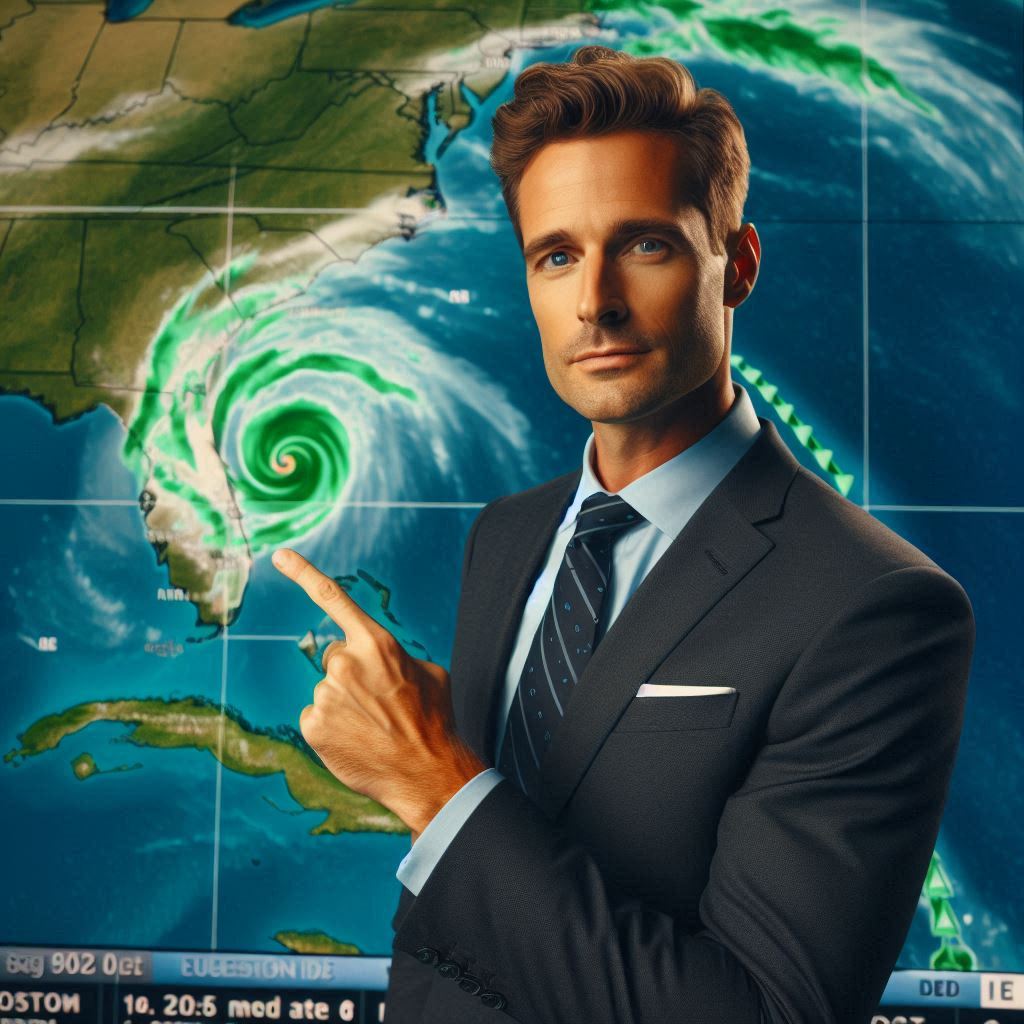Introduction
Certifications and licenses are crucial for professional meteorologists.
They validate expertise and enhance credibility in the field.
Meteorologists with certifications gain a competitive edge in job markets.
Many employers prefer hiring certified professionals for their specialized knowledge and skills.
Numerous certifications and licenses are available to meteorologists.
The American Meteorological Society (AMS) offers the Certified Broadcast Meteorologist (CBM) and Certified Consulting Meteorologist (CCM) credentials.
The National Weather Association (NWA) also provides a Certified Broadcast Meteorologist (CBM) certification.
Each of these credentials focuses on different aspects of meteorology, catering to diverse career paths.
Pursuing these certifications demonstrates a commitment to ongoing education and professional development.
Many meteorologists find that certifications open doors to higher-paying job opportunities and promotions.
Additionally, certifications help professionals stay updated with the latest research and technology in the field.
In a rapidly evolving industry, having the right credentials is essential.
They signify a meteorologist’s dedication to providing accurate and reliable weather information.
Thus, obtaining certifications and licenses is a vital step for anyone serious about a career in meteorology.
Education Requirements
Becoming a professional meteorologist requires specific educational qualifications to gain the necessary knowledge and skills.
The most common requirement is a bachelor’s degree in meteorology or a closely related field, such as atmospheric science.
This foundational education equips aspiring meteorologists with a deep understanding of weather systems, atmospheric processes, and climate patterns.
Bachelor‘s Degree in Meteorology
A bachelor‘s degree in meteorology provides students with a comprehensive introduction to the science of weather forecasting and climate analysis.
Courses cover topics like thermodynamics, atmospheric dynamics, and weather prediction models.
Students also learn to use radar systems, satellite data, and computer simulations to analyze weather patterns and forecast future conditions.
This strong foundation enables graduates to interpret complex weather data and provide accurate weather forecasts.
Many meteorology programs also include hands-on experience in the form of internships or fieldwork.
In addition, many meteorology programs incorporate coursework in physics, chemistry, and mathematics to further develop students’ analytical skills.
Master‘s and Doctoral Degrees for Advanced Positions
While a bachelor‘s degree is sufficient for entry-level meteorology positions, some roles may require a master‘s or doctoral degree.
Advanced degrees open up opportunities for specialization in areas like climate modeling, environmental meteorology, and atmospheric chemistry.
A master‘s degree in meteorology typically involves more specialized coursework and research.
Students focus on advanced topics such as climate change, severe weather phenomena, and atmospheric physics.
This level of education prepares graduates for more complex roles, including positions in government agencies, private weather firms, and research institutions.
Completing a master‘s degree can also lead to teaching positions at universities or colleges.
Doctoral programs are designed for individuals who want to pursue careers in research or academia.
Ph.D. candidates conduct original research and contribute new knowledge to the field of meteorology.
These programs emphasize independent research, critical thinking, and advanced data analysis.
A bachelor‘s degree is the minimum requirement for most meteorology positions, providing essential knowledge and practical skills.
However, advanced degrees may be necessary for specialized or research-oriented roles.
Meteorologists with a master‘s or doctoral degree have broader career opportunities and can contribute more significantly to the field of atmospheric science.
Professional certifications
Professional certifications play a vital role in advancing a meteorologist‘s career, validating expertise and enhancing credibility.
The American Meteorological Society (AMS) and the National Weather Association (NWA) offer certifications that are highly regarded in the field.
These certifications demonstrate a meteorologist‘s commitment to professional standards and technical excellence.
AMS Certified Broadcast Meteorologist (CBM)
The AMS Certified Broadcast Meteorologist (CBM) certification is one of the most respected credentials for broadcast meteorologists.
This certification ensures that meteorologists have the scientific knowledge and communication skills necessary to deliver accurate weather reports.
To earn the CBM, candidates must pass a rigorous written examination.
The exam tests a meteorologist‘s understanding of atmospheric science, weather patterns, and forecasting methods.
In addition to passing the exam, candidates must submit examples of their on-air work for review.
These submissions demonstrate the candidate‘s ability to communicate complex weather information clearly and effectively to the public.
The AMS reviews the broadcasts to ensure they meet professional standards for accuracy and clarity.
Once certified, broadcast meteorologists can display the CBM seal, which signifies their expertise to viewers and employers.
NWA Certified Broadcast Meteorologist (CBM)
The National Weather Association (NWA) Certified Broadcast Meteorologist (CBM) certification is specifically designed for broadcast meteorologists.
The NWA certification focuses on both the meteorological knowledge and communication skills required for effective weather broadcasting.
Candidates for this certification must also submit their on-air work for evaluation by the NWA.
The organization reviews these submissions to assess the meteorologist‘s ability to explain weather concepts to a general audience.
Earning the NWA CBM certification is a mark of professional achievement.
It assures employers and the public that the meteorologist meets the highest standards of competence and communication.
The NWA CBM is highly valued by broadcast stations and can open doors to new career opportunities in television and radio weather reporting.
AMS Certified Consulting Meteorologist (CCM)
The AMS Certified Consulting Meteorologist (CCM) certification is designed for meteorologists who provide specialized consulting services.
CCMs offer expert advice on weather-related issues such as climate studies, forensic meteorology, and environmental impact assessments.
To earn the CCM certification, meteorologists must demonstrate their technical expertise through a written exam and an oral interview.
Candidates must also present case studies of their work to showcase their ability to apply meteorological knowledge to real-world problems.
The certification process ensures that CCMs are well-equipped to provide accurate, reliable, and ethical consulting services.
This certification is particularly valuable for meteorologists working in private industry, legal settings, or government agencies.
Earning professional certifications from the AMS or NWA enhances a meteorologist‘s credibility and career prospects.
The AMS CBM and NWA CBM are essential for broadcast meteorologists, while the AMS CCM is ideal for consultants.
These certifications reflect a meteorologist‘s commitment to excellence and can significantly advance their professional standing.
Read: Exploring the Different Branches of Geology
Licensing requirements
Licensing for professional meteorologists is not universal, but some states require meteorologists to obtain a license.
These licenses ensure that meteorologists meet specific standards of competency and professionalism.
Licensing requirements vary by state, with some requiring exams, while others demand relevant experience or education.
Meteorologists working in states with licensing requirements must adhere to these guidelines to practice legally.
States That Require Licensing for Meteorologists
Not all states require meteorologists to be licensed, but several do, particularly for specialized roles.
In states where licensing is mandatory, meteorologists often need to prove their expertise through examinations or by demonstrating sufficient work experience.
States may also require meteorologists to hold specific degrees, such as a bachelor’s in meteorology or atmospheric science.
These regulations aim to maintain high standards in weather forecasting, research, and consulting services.
Licensing requirements vary by state and may include passing exams or meeting experience criteria
Exam-Based Licensing
In states with exam-based licensing, meteorologists must pass a state-administered test to demonstrate their knowledge and skills.
These exams often cover a range of topics, including atmospheric science, weather patterns, climate analysis, and forecasting methods.
Passing the exam certifies that the meteorologist can provide accurate and reliable weather predictions.
Additionally, meteorologists may need to pass ethics or legal exams to ensure they understand the responsibilities of practicing in their state.
Experience-Based Licensing
Some states base licensing on professional experience rather than exams.
In these states, meteorologists must show proof of relevant work experience, usually gained through internships, fieldwork, or employment in meteorology-related roles.
Licensing boards may require meteorologists to submit a portfolio of work or letters of recommendation from previous employers.
This ensures that licensed meteorologists have hands-on experience and practical skills.
Experience-based licensing is particularly common for consulting meteorologists or those involved in environmental impact studies.
By requiring a combination of education and experience, states ensure that licensed meteorologists can meet industry standards.
In many states, meteorologists with licenses must complete continuing education to maintain their credentials.
This helps them stay updated on the latest developments in meteorology, such as new forecasting technologies or climate research.
Continuing education may involve taking courses, attending workshops, or participating in conferences.
By staying informed, meteorologists can continue providing high-quality services to the public.
Licensing requirements for professional meteorologists vary by state, ensuring meteorologists meet certain standards of education, experience, and knowledge.
States may require exams, experience, or continuing education to maintain these licenses.
Licensing helps ensure that meteorologists are well-qualified, providing accurate and reliable weather predictions and consulting services.
Meeting these requirements enhances public trust in meteorology professionals and promotes high industry standards.
Read: Top Skills Needed for a Successful Geology Career
Benefits of certifications and licenses
Certifications and licenses significantly enhance a meteorologist’s career by increasing credibility and offering better job opportunities.
These credentials demonstrate advanced expertise, commitment to the field, and professional growth.
Increased Credibility and Recognition
Certifications and licenses boost a meteorologist‘s credibility, showing they have met high industry standards.
Meteorologists with certifications like AMS Certified Broadcast Meteorologist (CBM) are more trusted by employers and audiences.
Displaying certification credentials during weather forecasts reassures viewers of the meteorologist’s expertise and accuracy.
In consulting, the AMS Certified Consulting Meteorologist (CCM) certification signals advanced knowledge and competence in providing weather-related solutions.
Certified meteorologists stand out in competitive job markets and are viewed as reliable experts.
Clients and employers often prefer certified meteorologists due to their proven skills and qualifications.
Transform Your Career Today
Unlock a personalized career strategy that drives real results. Get tailored advice and a roadmap designed just for you.
Start NowHigher-Paying Job Opportunities
Certifications can lead to higher-paying positions within the meteorology industry.
Certified meteorologists tend to earn more than non-certified peers due to their specialized knowledge.
Employers value certifications like the National Weather Association (NWA) Certified Broadcast Meteorologist (CBM) and AMS CBM.
These credentials often result in better job offers and promotions.
Consulting meteorologists with certifications like AMS CCM can charge higher fees for their expertise.
Certified professionals are in higher demand and often access better-paying career opportunities.
Commitment to Ongoing Professional Development
Earning and maintaining certifications show a meteorologist‘s dedication to continuous learning and skill development.
Certifications often require ongoing education, ensuring meteorologists stay updated on the latest advancements.
Continuing education may include attending workshops, conferences, or completing specialized courses.
Meteorologists who prioritize professional development remain competitive in an ever-evolving field.
Staying current with emerging technologies and climate trends allows them to provide more accurate forecasts.
This commitment to learning benefits both the meteorologist‘s career and the quality of their work.
Certifications and licenses provide meteorologists with clear benefits, including increased credibility, higher salaries, and ongoing professional development.
Employers, clients, and viewers trust certified meteorologists to deliver reliable and accurate information.
Certified meteorologists are better positioned for promotions, higher-paying roles, and specialized consulting work.
By earning certifications, meteorologists demonstrate their commitment to excellence and staying current with industry trends.
These credentials are essential for career growth and advancing in the meteorology profession.
Read: The Future of Botany: Emerging Fields and Innovations

Learn More: Top Universities for Bioinformatics Programs in the US
Continuing education requirements
Many certifications and licenses require professionals to complete continuing education credits
Continuing education is essential for meteorologists to maintain their certifications and licenses.
Many certifications and licenses require professionals to complete continuing education credits regularly.
This requirement ensures that meteorologists stay current with industry advancements, research, and technologies.
Ongoing education helps meteorologists enhance their skills and knowledge, which ultimately benefits their careers.
Importance of Continuing Education
Continuing education serves multiple purposes for meteorologists.
First, it ensures they remain informed about the latest scientific research and developments in meteorology.
This knowledge enables them to apply new techniques and technologies in their forecasting and consulting work.
Staying updated also helps meteorologists address emerging weather-related challenges effectively.
Second, continuing education fosters professional growth.
Meteorologists can explore specialized areas within the field, such as climate science, atmospheric physics, or remote sensing.
These courses expand their skill sets and make them more valuable to employers.
Meteorologists who engage in ongoing learning demonstrate a commitment to their profession, which enhances their credibility.
Types of Continuing Education
Continuing education can take many forms, including workshops, seminars, online courses, and conferences.
Many meteorologists attend industry conferences to learn about new research findings and best practices.
Workshops provide hands-on training that allows meteorologists to apply new skills directly to their work.
Online courses offer flexibility for busy professionals, allowing them to learn at their own pace.
In addition, some organizations offer webinars and virtual training sessions, making education more accessible.
Meteorologists can participate in these programs from anywhere, which helps them balance work and education.
These various formats make it easier for meteorologists to fulfill their continuing education requirements.
Keeps meteorologists up-to-date on the latest research and technology
Staying updated through continuing education has several benefits for meteorologists.
It enhances their forecasting abilities by incorporating the latest technologies and methodologies.
Meteorologists can utilize advanced tools for data analysis, modeling, and visualization, improving their predictions’ accuracy.
Furthermore, continuing education fosters collaboration among professionals.
Meteorologists who engage in educational events often network with peers and industry leaders.
These connections can lead to collaborative projects, sharing insights, and exchanging ideas.
Networking strengthens the professional community and encourages innovation in meteorology.
Continuing education is a vital aspect of professional development for meteorologists.
It ensures they remain informed about advancements in research and technology.
Many certifications and licenses require completing continuing education credits, emphasizing the importance of lifelong learning.
By participating in workshops, seminars, and courses, meteorologists enhance their skills and knowledge.
This commitment to education ultimately benefits their careers and the quality of their work.
Through ongoing learning, meteorologists can adapt to changing weather patterns and provide accurate forecasts, ensuring they remain valuable assets in the industry.
Read: What Does a Geologist Do? Career Overview and Insights
Challenges in obtaining certifications and licenses
Obtaining certifications and licenses presents several challenges for aspiring meteorologists.
Many professionals encounter financial burdens due to exam costs and application fees.
Additionally, the time commitment required to study and prepare for exams can be significant.
These challenges can deter motivated individuals from pursuing essential credentials in the meteorology field.
Cost of Exams and Application Fees
The costs associated with obtaining certifications and licenses can be substantial.
Each certification exam often has a registration fee, which can range from a few hundred to several hundred dollars.
For many professionals, these fees can strain their budgets, particularly for those early in their careers.
Some meteorologists may need to consider whether they can afford to invest in these exams while managing other financial obligations.
Moreover, application fees for certifications can add to the financial burden.
Many organizations require payment to process applications, which can be an unexpected expense.
This situation can create a barrier for individuals who want to advance their careers but lack the necessary financial resources.
Without sufficient funds, aspiring meteorologists may delay or forgo pursuing their desired certifications altogether.
Time Commitment Required to Study
In addition to financial challenges, the time commitment required to prepare for certification exams can be daunting.
Meteorologists must dedicate significant hours to studying and understanding complex topics.
Many certification exams cover a broad range of subjects, including atmospheric science, meteorological theory, and forecasting techniques.
This extensive curriculum requires focused and consistent study efforts over several weeks or months.
Balancing study time with work and personal commitments can prove difficult.
Many meteorologists work full-time jobs, leaving limited time for exam preparation.
The pressure to perform well on the exam adds stress, making it essential for candidates to manage their time effectively.
Failing to find this balance can lead to inadequate preparation and reduced confidence.
Despite these challenges, many meteorologists successfully obtain their certifications and licenses.
Creating a structured study plan can help candidates manage their time effectively.
Setting specific goals and milestones can make the study process more manageable.
Additionally, leveraging online resources and study groups can enhance understanding and retention of material.
Professionals can also seek financial assistance through scholarships or employer-sponsored programs.
Some employers may offer to cover exam costs or provide financial support for educational resources.
Taking advantage of these opportunities can alleviate some financial pressures and motivate candidates to pursue their certifications.
Obtaining certifications and licenses in meteorology presents challenges related to costs and time commitments.
Exam registration fees and application costs can create financial burdens for aspiring meteorologists.
The significant time commitment required for studying can add stress, especially for those balancing full-time work.
However, with effective planning and support, many professionals can overcome these challenges.
By prioritizing their education and utilizing available resources, meteorologists can successfully earn their certifications and advance their careers.
Conclusion
Certifications and licenses play a vital role in the careers of professional meteorologists.
They enhance credibility and demonstrate expertise in the field.
Many employers prioritize certified professionals, which can lead to better job opportunities and higher salaries.
These credentials reflect a commitment to ongoing education and professional development.
Pursuing certifications like the AMS Certified Broadcast Meteorologist (CBM) or AMS Certified Consulting Meteorologist (CCM) can significantly benefit your career.
These certifications ensure that you stay current with industry advancements, enhancing your skills and knowledge.
Moreover, they allow you to establish yourself as a trusted expert in meteorology.
While challenges exist, such as costs and time commitments, the rewards outweigh the difficulties.
Consider developing a structured study plan to help manage your time effectively.
Additionally, explore financial assistance options through scholarships or employer support.
By actively pursuing certifications and licenses, you invest in your future.
This dedication to professional growth will open doors to new opportunities and advancements in your career.
Embrace the journey, and take the steps necessary to achieve your goals in the meteorology profession.




